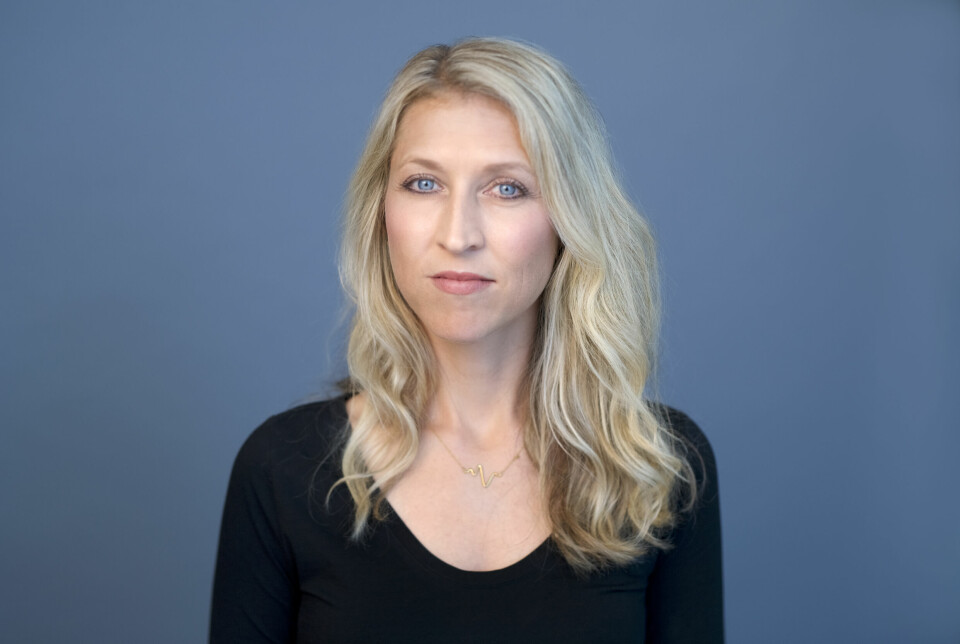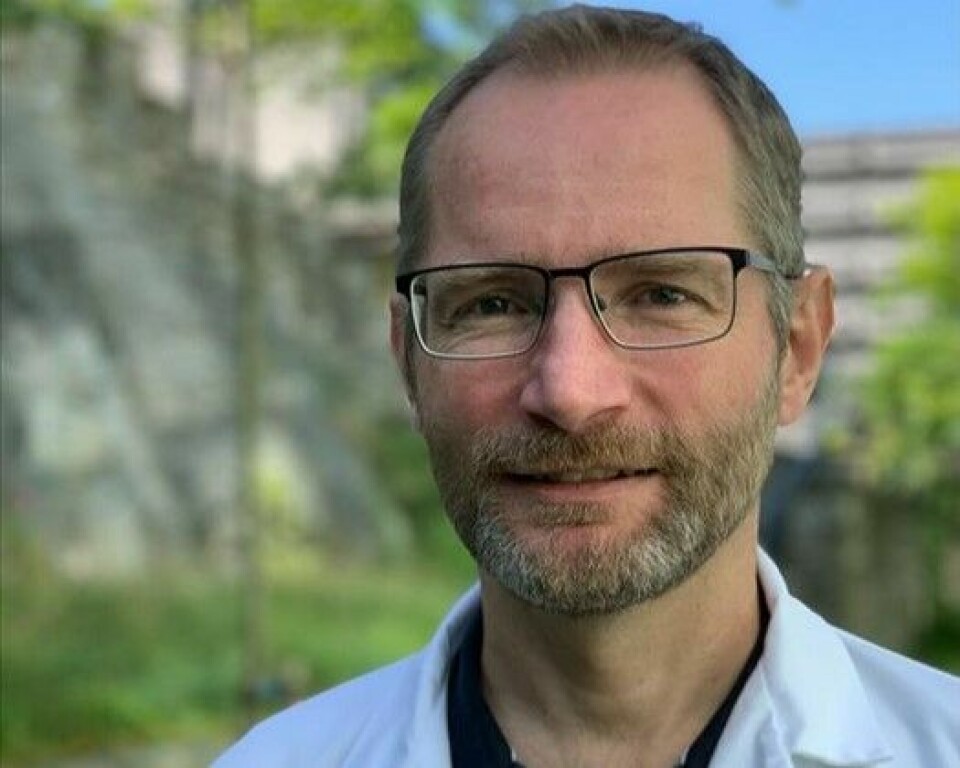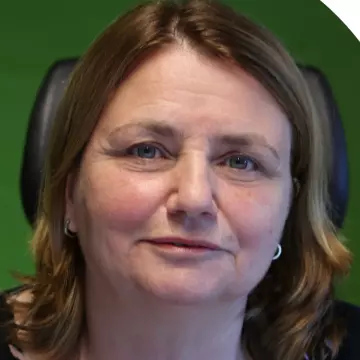
Recovery from ME, long Covid and burnout is possible, according to 50 researchers and doctors
"By saying that chronic fatigue syndrome cannot be cured, patients become insecure, stressed or scared, and they naturally lose hope. This results in poorer health," Silje Endresen Reme says.
Fatigue syndromes are real illnesses that people can recover from. That is the message from 50 researchers and doctors from six countries.
They are critical of the prevailing use of various diagnostic labels for chronic fatigue syndromes such as CFS/ME, long Covid, and burnout. The symptoms overlap, they write.
Silje Endresen Reme is one of the researchers behind their proposition called the Oslo Statement. She is a professor in the Department of Psychology at the University of Oslo and researches stress, pain, and fatigue.
“The symptoms of CFS/ME aren’t unique – they also occur in other conditions, like fibromyalgia and cancer-related fatigue,” Reme says.
She does not rule out that new research could lead to a better understanding of CFS/ME or similar conditions, but based on what researchers know today, there is no basis for distinguishing CFS/ME from other types of exhaustion.
No grounds for different treatment
“Of course these conditions have distinctive features, but there’s no reason for the patients to receive different treatment,” says Reme.
CFS/ME patients are often advised to be careful about exerting themselves so that they do not develop symptoms afterwards.
“This advice isn’t given for the other conditions. We recommend that patients gradually increase activity for all forms of fatigue. Fatigue and other symptoms following an activity are unpleasant but not dangerous,” says Reme.
There are no biomarkers – that is, traces in the body – which show that a person has CFS/ME. Doctors make the diagnosis according to the symptoms a person has.
Fatigue is the most important symptom, according to the Norwegian Directorate of Health's national guidance on CFS/ME. PEM, or post exertional malaise, is also a symptom.
“PEM, which can involve increased fatigue or pain, is a subjective experience and can’t be measured in the body either,” says Reme.
The symptoms are undoubtedly real, but they do not always stem from physical illness.
Brain slows us down
Research from several disciplines, such as neuroscience, evolutionary biology and physiology, can explain how the symptoms arise, develop and persist, the researchers write. They are all part of the Oslo Chronic Fatigue Consortium, made up of researchers, clinicians, and patient representatives.
The symptoms are reactions that have developed through evolution to keep us safe. When we experience discomfort or illness, the brain sends out signals in the form of symptoms such as fatigue and pain to warn us and slow us down. This is a useful defence mechanism, but if it continues for a long time, it can become chronic or automated, the statement says.
Reme rejects the supposed contradiction between research into biological causes of CFS/ME and the Chronic Fatigue Consortium’s approach.
“I think it's great that research investigating biological mechanisms in CFS/ME patients receives funding. We have many good discussions across our professional fields,” she says.
Searching for causes of CFS/ME
Karl Johan Tronstad is a professor in the Department of Biomedicine at the University of Bergen and has recently been awarded 1 million USD for research on CFS/ME.
“We’re searching for what causes ME,” he says.
Tronstad and his colleagues are studying how the cells in the body utilise and convert energy.
“Activity causes the body to need more oxygen, but it seems that in some people less oxygen moves from the blood into the cells,” Tronstad says.

The Bergen researchers will measure 300 blood samples from CFS/ME patients and compare them with healthy people.
“We’ve already analysed several thousand different molecules in the blood and found extensive differences in CFS/ME patients compared to healthy individuals. We’re also finding some variation within the CFS/ME population,” he says.
Researchers have not compared the results from CFS/ME patients with patients who have other forms of fatigue.
What is the reason for differences?
“We initially plan to compare CFS/ME patients with long Covid patients,” says Tronstad.
Currently, Tronstad and his colleagues do not know to what degree the differences between CFS/ME patients and healthy people are due to the disease itself. Energy turnover can to some extent also be affected by factors like low activity and poor physical condition.
“Gender, diet, medication, and physical capacity can lead to changes in energy turnover, but we believe that this still doesn’t explain all the differences. We’ll investigate that in the future,” says Tronstad.
CFS/ME has been studied for 40 years, but we still haven’t found a biological explanation, according to the Oslo Statement.
“Researchers find a lot of small deviations in patients diagnosed with CFS/ME that can also be found in individuals with somatic diseases or mental disorders. But that’s not strange, because things happen in the body when you’re sick. If a healthy person lies in bed for two weeks in a dark room, a lot of biomarkers will show that something’s wrong,” Silje Endresen Reme says.
Determining what is cause and what is effect
The researchers behind the Oslo Statement believe that a holistic perspective that includes biological, psychological, and social factors is necessary.
Tronstad believes that CFS/ME is still an under-researched disease with far too little funding.
“The available studies have often been small and included only a few patients. However, we’ve received more biological data in recent years, so we have a better starting point than we’ve ever had,” he says. “We have to move forward in figuring out the causal factors – what’s cause and what’s effect."
Reme emphasises that the symptoms are real and troublesome, and she also believes it is important to distinguish between cause and effect.
“We have to start somewhere else. The brain can produce powerful symptoms. For example, a quarter of patients experience symptoms from placebos, like sugar pills,” she says.
Warns against viewing CFS/ME as incurable
Some patients are met with mistrust and rejection by doctors, which could have contributed to a distrust of psychological and social factors, the researchers write.
They state that treatment that includes therapy and exercise has the best documented effect for use in improving these conditions.
“We haven’t arrived at a final solution, but treatment approaches are available that can help a lot of people and can heal some of them,” says Reme.
The researchers warn against viewing CFS/ME as an incurable disease. They state that this can lead to fear and powerlessness and be harmful to patients, because it prevents effective treatment programmes and healing.
“Saying that CFS/ME can’t be cured can make patients insecure, stressed or scared, so they naturally lose hope. This leads to poorer health,” Reme says.
“Avoiding activity, lying in bed and avoiding sensory impressions or social interaction is also harmful to our mental health, as well as the rest of the body,” she says.
Tronstad also believes that patients can recover from CFS/ME if the right treatment is found.
Hope for the research
“We’re looking for biomarkers that can tell us which patients can benefit from which treatment,” says Tronstad. “We mostly focus on medical treatment. One hypothesis is that CFS/ME might be due to the immune system overreacting after an infection. It could be that some of the CFS/ME patients would benefit from treatment that corrects this overreaction.”
He is not ignoring the fact that new medicines might emerge but believes that trying out existing medicines is a quicker way to go.
“Our focus in the new project is to find links between the changes in the blood samples and what actually happens at the cellular level,” says Tronstad.
“We’re finding that patients have a lot of hope for our research,” he says.
The researchers behind the Oslo Statement believe that the patients' voices are important, particularly listening to those who have improved or recovered from these conditions.
Can’t be equated
Trude Schei is the assistant secretary general of the Norwegian ME Association.
She does not regard the Oslo Statement as anything new, but rather as more of the same as these researchers have been saying for a number of years.
“We’re in the midst of an ME paradigm shift. Both American and British health authorities have moved away from CFS/ME being psychologically conditioned. So what happens to the researchers who have built their entire careers on a now obsolete view?” Schei asks.
She does not agree that CFS/ME, long Covid, and burnout can be equated.
“It would be the same as saying that COPD, tuberculosis, and asthma are the same disease, since all the patients cough. They take one symptom out of a large picture of symptoms and hang everything on it. That doesn't work,” says Schei.

She believes that the researchers behind the new study are promoting fatigue as the main symptom of CFS/ME.
“Fatigue has a very broad definition that encompasses a great many patients,” she says.
The difference between other fatigue conditions and CFS/ME is PEM, according to Schei.
“PEM worsens all the symptoms, including fatigue, sleep difficulties, cognitive problems, and digestion, and the reduced physical capacity in CFS/ME patients lasts for much longer,” she says.
Includes other types of hope
Schei finds having a realistic perception of the course of the disease and offering hope of recovery to be a difficult balancing act.
“I’ve had CFS/ME for 24 years, and although I have a small hope deep down that I’ll recover, I no longer believe that it will happen,” Schei says.
Other kinds of hope are more important than that of recovering from ME, according to Schei.
“We can hope that the disease will be accepted, that patients will be listened to, given respect and understanding, that they will receive the benefits they’re entitled to from NAV (the Norwegian Labour and Welfare Administration) and that care places will be created for CFS/ME sufferers,” she says.
“Our work is also hopeful: We hope that CFS/ME sufferers will have a better situation than they do today. Small, realistic hopes are better than one large, unrealistic hope of recovery,” says Schei.
The CFS/ME Association does not see any way to unite the two CFS/ME research directions – one that is looking for biological causes and the other that believes CFS/ME is due to a mixture of biological, psychological and social factors.
“The two approaches don't even talk about the same patient group, so I don't see how they can agree. For that to happen, one side would have to admit that they were very wrong,” says Trude Schei.
———
Read the Norwegian version of this article on forskning.no
Reference:
The Oslo Chronic Fatigue Consortium et al. Chronic fatigue syndromes: real illnesses that people can recover from, Scandinavian Journal of Primary Health Care, 2023. DOI: 10.1080/02813432.2023.2235609





































